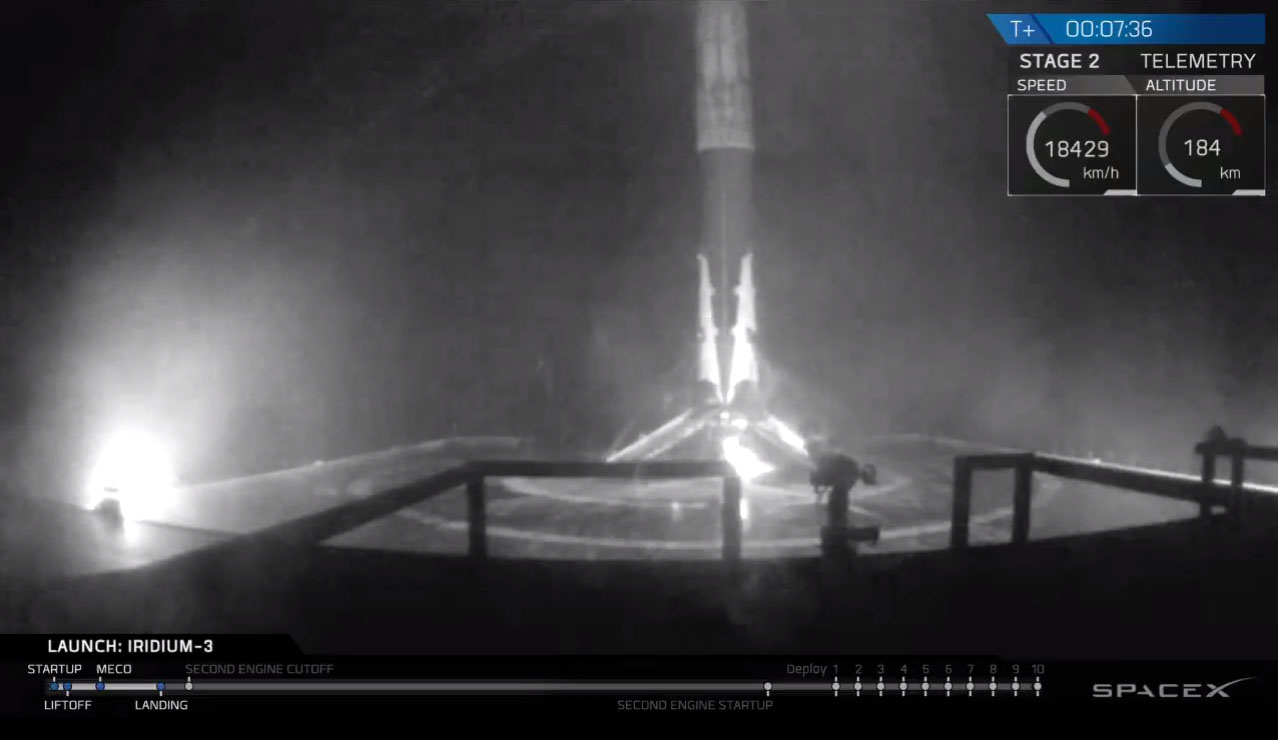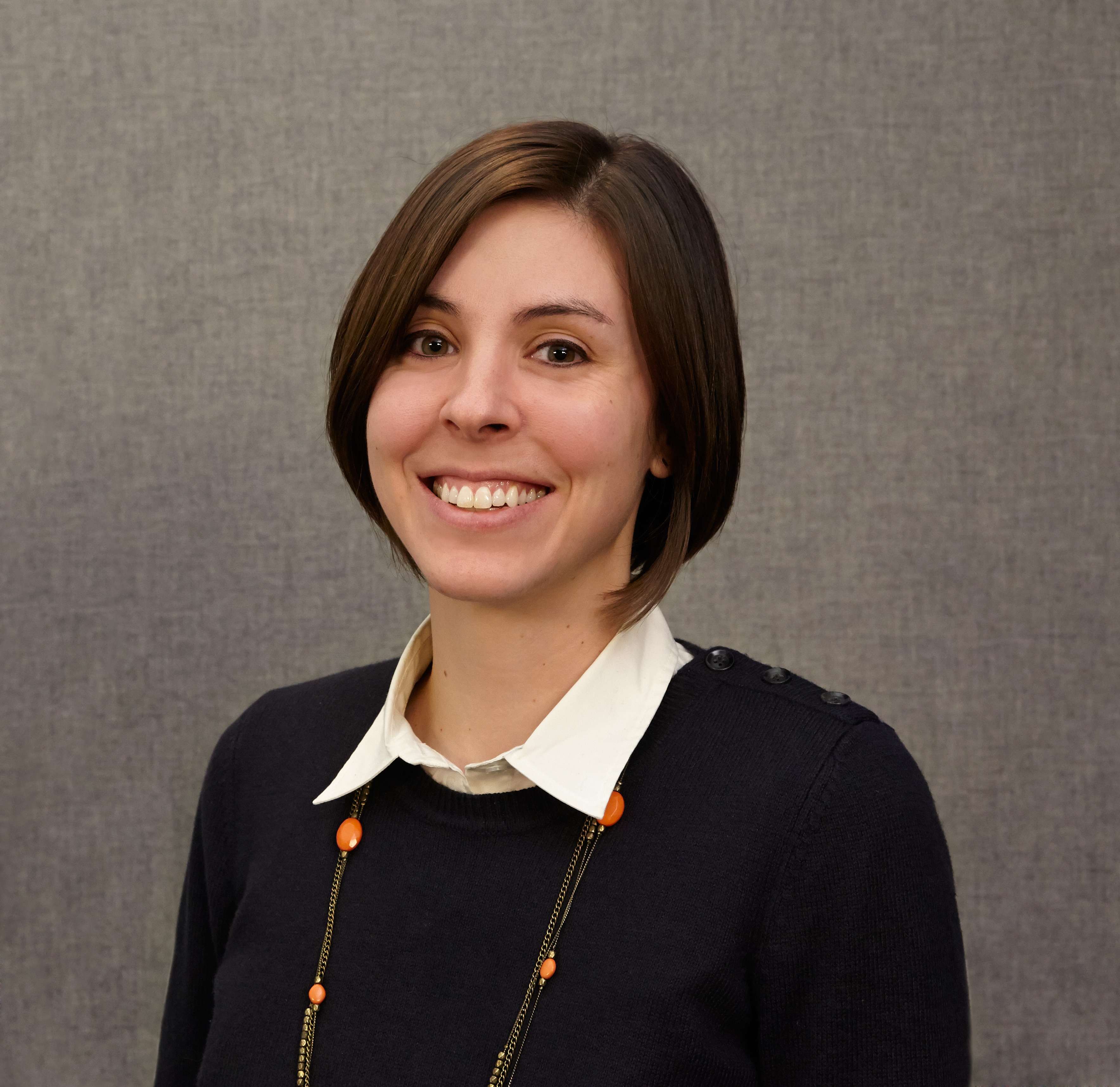SpaceX Launches 10 New Iridium Satellites, Sticks Rocket Landing
The private spaceflight company SpaceX successfully launched 10 communications satellites into low-Earth orbit today (Oct. 9) and landed the spent Falcon 9 first-stage rocket booster on a drone ship in the Pacific Ocean.
The SpaceX Falcon 9 rocket took off from Vandenberg Air Force Base in California at 8:37 a.m. EDT (1237 GMT/5:37 a.m. EDT), carrying 10 satellites for Iridium Communications, as part of the company's Iridium Next constellation. The first stage of the two-stage Falcon 9 landed on SpaceX's drone ship "Just Read the Instructions" in the Pacific about 7.5 minutes after the launch.
"Looks like we've got a good orbit," said John Insprucker, SpaceX's Falcon 9 principal integration engineer, just after the launch during live webcast commentary.
The Iridium Next satellites were deployed 57 minutes after liftoff, with the entire process taking about 15 minutes, according to a SpaceX flight plan.
"We're 10 for 10!" Insprucker said. "A clean sweep of Iridium Next satellite deployment in the desired final orbit."
The Iridium Next constellation will eventually consist of 66 primary satellites and nine on-orbit backup satellites. This is the third of eight scheduled SpaceX launches for the Iridium Next constellation, which brings the total number of satellites now in orbit up to 30.
Today was the first flight of this particular Falcon 9 first-stage booster, a company representative told Space.com. SpaceX has successfully flown Falcon 9 boosters that were previously used, and plans to use a pre-flown booster to launch another communications satellite into orbit on Wednesday (Oct. 11), from NASA's Launch Complex 39A at the Kennedy Space Center in Florida.
Get the Space.com Newsletter
Breaking space news, the latest updates on rocket launches, skywatching events and more!
Today's mission also marked SpaceX's 14th launch this year and the 17th successful landing of a Falcon 9 first stage. SpaceX has been reusing Falcon 9 first stages and is pursuing fully reusable rockets in an effort to lower the cost of spaceflight.

Iridium Communications announced earlier this week that it had begun testing and validating its Iridium Certus service, which will utilize the Iridium Next satellites to provide a "truly global broadband service" to its users, according to a statement from the company. The 66 satellites will spread out around the planet to provide service to remote regions of the globe, the company has said.
At an industry conference last spring, Iridium representatives discussed the ways that the satellite constellation could be used to better keep track of airplanes, particularly over open ocean where ground-based tracking systems are unavailable. The commercial service is expected to be available in the "early second quarter" of 2018, according to the statement.
Follow Calla Cofield @callacofield. Follow us @Spacedotcom, Facebook and Google+. Original article on Space.com.
Join our Space Forums to keep talking space on the latest missions, night sky and more! And if you have a news tip, correction or comment, let us know at: community@space.com.

Calla Cofield joined Space.com's crew in October 2014. She enjoys writing about black holes, exploding stars, ripples in space-time, science in comic books, and all the mysteries of the cosmos. Prior to joining Space.com Calla worked as a freelance writer, with her work appearing in APS News, Symmetry magazine, Scientific American, Nature News, Physics World, and others. From 2010 to 2014 she was a producer for The Physics Central Podcast. Previously, Calla worked at the American Museum of Natural History in New York City (hands down the best office building ever) and SLAC National Accelerator Laboratory in California. Calla studied physics at the University of Massachusetts, Amherst and is originally from Sandy, Utah. In 2018, Calla left Space.com to join NASA's Jet Propulsion Laboratory media team where she oversees astronomy, physics, exoplanets and the Cold Atom Lab mission. She has been underground at three of the largest particle accelerators in the world and would really like to know what the heck dark matter is. Contact Calla via: E-Mail – Twitter









